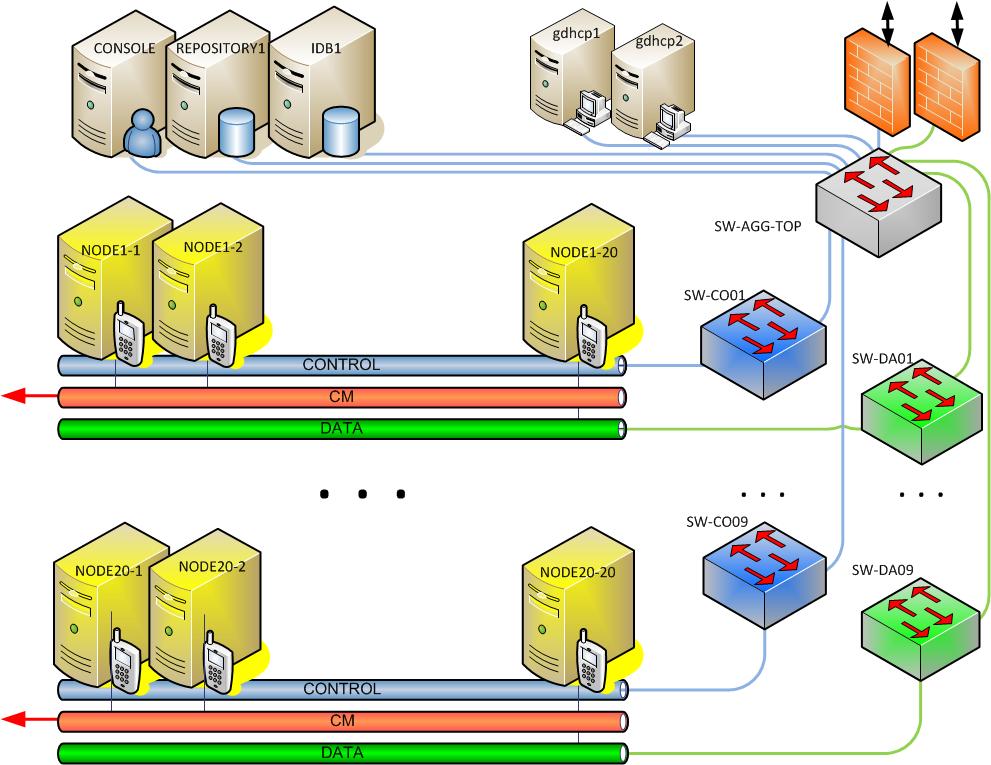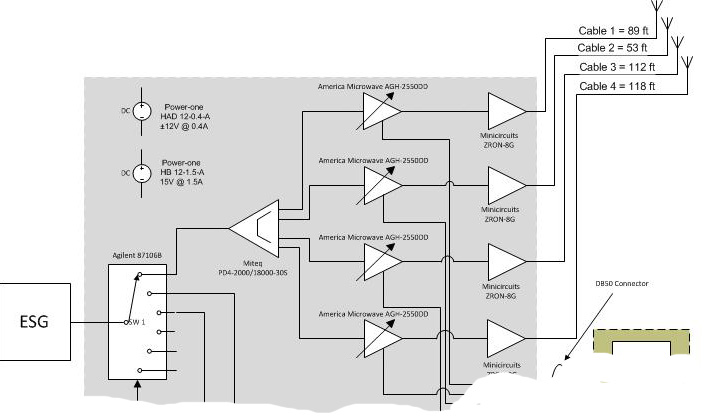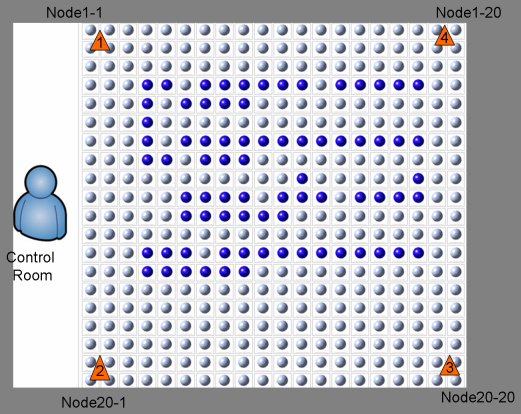| Version 36 (modified by , 10 years ago) ( diff ) |
|---|
Grid
Table of Contents
Block diagram of the ORBIT Grid domain is shown in Figure 1. Main components of this domain are:
- Grid nodes: 20 x 20 machines arranged in the grid configuratoin (20 rows with 20 nodes each) with spacing of 3 feet.
- Massive-MIMO racks: four mini-racks of SDRs with 32 antennas each
- Servers: number of servers of varying capabilities
- Virtual machines: number of on-demand VM instances
- Noise injection subsystem:
- Support infrastructure: Ethernet switches, console and other support hardware

Figure 1: ORBIT GRID
Massive-MIMO mini-racks

Figure 2: Massive-MIMO mini-rack
Servers
Number of hihger-core count/larger memory servers some of which are equipped with GPUs.
Noise Injection subsystem
The Centralized Arbitrary Waveform Injection Subsystem (CAWIS) consists of arbitrary waveform generator (Agilent ESG) connected through distribution network to four multi-band antennas located in the four corners of the grid. The distribution network enables control over the attenuation of the individual antenna feed. Using CAWIS, users can inject (among other types of waveforms) AWGN signals into the main ORBIT grid and thus create different topologies.
Noise Antennas in the Grid
Figure 2: CAWIS 

a.) Block Diagram b.) Noise injection antenna positions
As most of the Orbit services, CAWIS is a web-based service accessible from main grid console through url: http://instrument1.orbit-lab.org:5054/interference. As with other aggregate managers, accessing this url without any other arguments will show it's usage page.
Attachments (5)
- noiseantenna.png (197.6 KB ) - added by 19 years ago.
-
ORBITGridBD.jpg
(114.3 KB
) - added by 13 years ago.
ORBIT Grid Block Diagram
-
CAWIS.jpg
(70.4 KB
) - added by 13 years ago.
Interference Injection Subsystem Block Diagram
-
Massive-MIMO.jpg
(163.8 KB
) - added by 10 years ago.
Massive-MIMO mini-rack
- APAMSJ-137.pdf (2.0 MB ) - added by 3 years ago.
